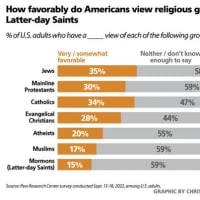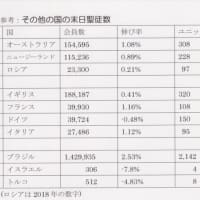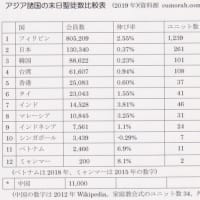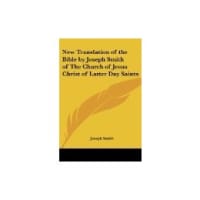以下は沼野による言語談義であるが、「まことの」(true)は原語のギリシャ語ἀληθινὸsには、true <->false の関係というより、perfect/imperfect, shadowy/the substantial (影のような、実体のない/実体のある、実質的に価値のある) という関係、あるいは ideal, genuine の意義がある、と辞書にある。(Gingrich, Trench).また、ヤングのコンコーダンスにはTrue(ἀληθινὸs)にreal, sincere, veracious(真実の、正確な、正直な)の意義があがっている。
それで「真偽」の真というより、「真善美」の真、他との比較というより、それ自身の資質を指すととらえられる、と考えたい私である。
註 参照した辞書
F.W. Gingrich and W.F. Arndt ed. "A Greek-English Lexicon of the New Testament and Other Early Christian Literature." The University of Chicago Press, 1957
Richard C. Trench, "Synonims of the New Testament." Wm. B. Eerdmans Publishing Company, 1980
W.E.Vine, "Expository Dictionary of New Testament Words." Zondervan Publishing House, 1982
Robert Young, "Analytical Concordance to the Holy Bible." Lutterworth Press, 1979
それで「真偽」の真というより、「真善美」の真、他との比較というより、それ自身の資質を指すととらえられる、と考えたい私である。
註 参照した辞書
F.W. Gingrich and W.F. Arndt ed. "A Greek-English Lexicon of the New Testament and Other Early Christian Literature." The University of Chicago Press, 1957
Richard C. Trench, "Synonims of the New Testament." Wm. B. Eerdmans Publishing Company, 1980
W.E.Vine, "Expository Dictionary of New Testament Words." Zondervan Publishing House, 1982
Robert Young, "Analytical Concordance to the Holy Bible." Lutterworth Press, 1979




















※コメント投稿者のブログIDはブログ作成者のみに通知されます